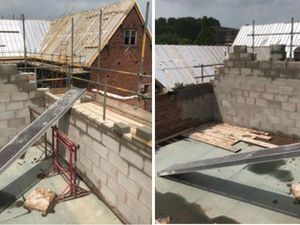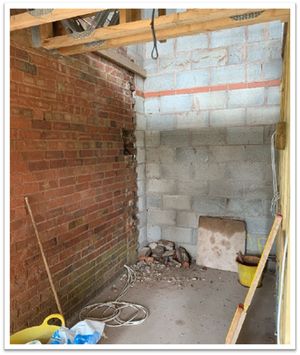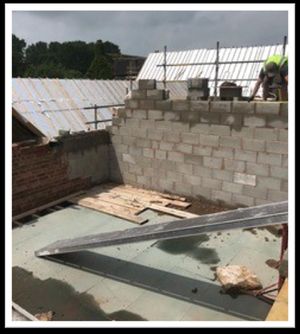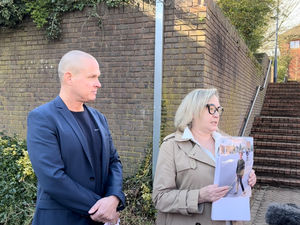Firm fined after bricklayer falls four and a half metres onto concrete and fractures skull
A construction company has been fined £12,000 after a Shropshire bricklayer fell through a stairwell opening and fractured his skull.

Scott Ife, 30, from Bridgnorth, was working for 2 Counties Construction (Midlands) Ltd when the incident took place on June 8, 2020.
The company, which is based in Broomhall, Worcester, had been hired as the principal contractor overseeing the refurbishment of agricultural barns into houses on Humber Lane in Telford.
Mr Ife fell through an unprotected stairwell opening from the first floor of the renovation project.

Working alongside another employee, Mr Ife, who was 27 at the time, was laying the blocks to form the gable walls for a two-storey extension.
The pair set up a working platform using boards on the first floor of the property. As there was an unprotected stairwell opening in the property, one end of a board covering the gap was unsupported.
While leaning over to point up the blocks in the gable walls, Mr Ife lost his balance before falling onto the unsupported board and through the stairwell opening.

He fell four and a half metres onto the concrete floor below, fracturing his skull and damaging his facial nerve.
Mr Ife was hospitalised for three days following the incident.
An investigation by the Health and Safety Executive (HSE) identified a series of failings on the part of 2 Counties Construction (Midlands) Ltd including a lack of suitable controls for preventing falls into the building and through the stairwell openings.

There was also inadequate planning, a lack of selection of equipment for working at height and inadequate site management arrangements.
2 Counties Construction pleaded guilty to contravening health and safety regulations at Cannock Magistrates Court on July 21.
As well as fining the company £12,000, 2 Counties Construction was also ordered to pay £4,139 in costs as well as a victim surcharge fee of £100.
HSE inspector David Brassington said: “This incident could and should have been easily avoided. Work at height needs to be properly planned and managed to ensure that appropriate precautions are used.
“We are fortunate that the injuries resulting from these failings were not more serious.”





